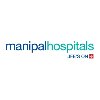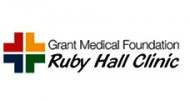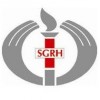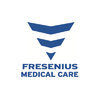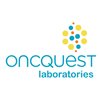3 Maharaja Agrasen Hospital Consultant Jobs

Consultant (Cardiology)
Maharaja Agrasen Hospital
posted 26d ago
Job Description
Patient Consultation:Conduct consultations with patients to assess cardiovascular health, perform examinations, and establish diagnoses.Diagnostic Testing:Order and interpret diagnostic tests, including echocardiograms, stress tests, and angiograms.Treatment Planning:Develop and implement personalized treatment plans for patients with cardiovascular conditions.Medication Management:Prescribe and manage medications, ensuring appropriate dosage and monitoring for potential side effects.Invasive Procedures:Perform or assist with invasive procedures such as cardiac catheterization, angioplasty, and stent placement.Collaboration with Healthcare Teams:Collaborate with cardiovascular surgeons, nurses, and other healthcare professionals to ensure integrated and coordinated patient care.Patient Education:Educate patients on cardiovascular health, lifestyle modifications, and treatment options.Medical Record Keeping:Maintain accurate and up-to-date medical records, documenting patient histories, treatment plans, and progress notes.Emergency Response:Respond to cardiovascular emergencies within the hospital, providing immediate medical care and coordination.Continuous Learning:Stay updated on the latest advancements in cardiology through continuous medical education and training.Quality Improvement:Participate in quality improvement initiatives, ensuring adherence to best practices and standards in cardiology.
Employment Type: Full Time, Permanent
Read full job descriptionPrepare for Consultant roles with real interview advice
People are getting interviews at Maharaja Agrasen Hospital through
People are getting interviews through
(based on 3 Maharaja Agrasen Hospital interviews)
Job Portal
Walkin
67%
33%
Moderate
Confidence
?
Moderate Confidence means the data is based on a sufficient number of responses received from the candidates
What Consultant at Maharaja Agrasen Hospital are saying
Consultant salary at Maharaja Agrasen Hospital
reported by
8
employees
with 6-13
years exp.

₹20
L/yr - ₹36
L/yr
89%
more
than the average Consultant Salary in India
View more details
What Maharaja Agrasen Hospital employees are saying about work life
based on 144 employees
Strict timing
Monday to Saturday
No travel
Day Shift
Similar Jobs for you
Maharaja Agrasen Hospital New Delhi Office Location
New Delhi Office
Dwarka Flyover, near Shiv Shankar petrol pump, Pocket 4, Sector 1 Dwarka, Dwarka, New Delhi, Delhi 110045, India
New Delhi
View on map
Share an Interview










